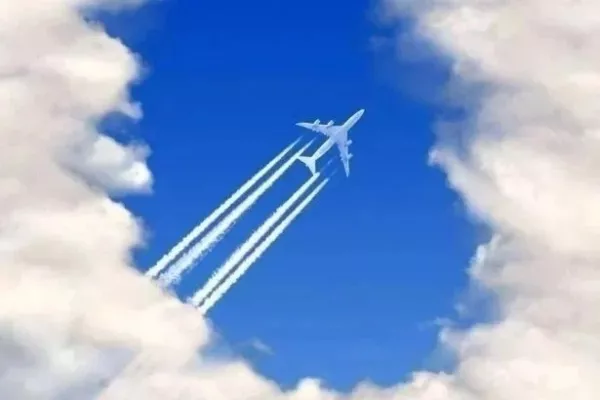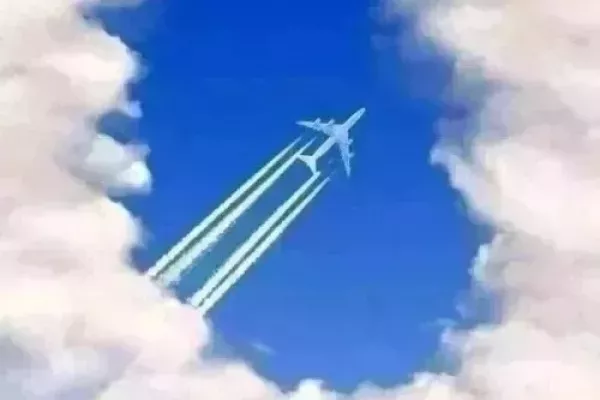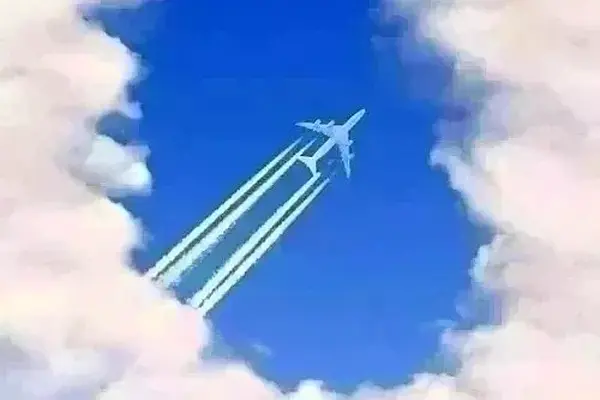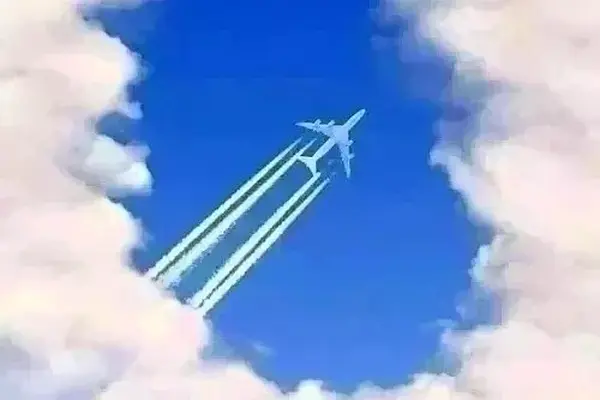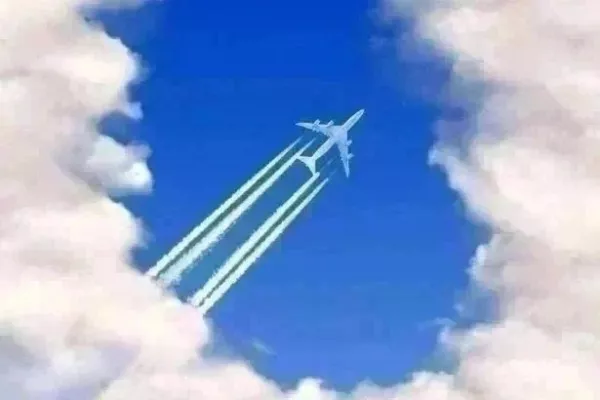Russia's invasion of Ukraine has stalled a travel recovery for airlines and led to a 23% fall in flight bookings within Europe and a 13% fall in transatlantic bookings in the first week, travel data firm ForwardKeys said on Thursday 10 March.
The data, which compared bookings from 24 February to 2 March to the week before Russia launched what it described as a "special operation" in Ukraine, is an early indicator of consumer confidence for travel heading into the peak summer season.
Rising inflation and oil prices are also dampening the economic outlook and carriers including Lufthansa LHAG.DE, Qantas Airways QAN.AX and Japan's ANA Holdings 9202.T have warned ticket prices may need to rise to cover increased costs.
The worst-hit destinations in Europe were those in the east closest to the conflict, with Bulgaria, Croatia, Estonia, Georgia, Hungary, Latvia, Lithuania, Poland, Slovakia and Slovenia seeing a 30% to 50% drop in bookings, according to ForwardKeys.
Domestic bookings in Russia, which had been one of the world's top performing markets during the pandemic, fell 49%.
ForwardKeys vice president insights Olivier Ponti said Russia's invasion of Ukraine had stalled a recovery in bookings that began in January after cases of the Omicron variant of the coronavirus peaked in many countries.
But he added the impact on trans-Atlantic travel and western European destinations was so far not as bad as he had feared.
"North Americans can tell the difference between war in Ukraine and war in Europe, and so far, it seems that travellers regard the rest of Europe as relatively safe," Ponti said in a statement.
EU Blacklists Aeroflot CEO, More Oligarchs In New Sanction Round - Official Journal
The above news followed news that the European Union on Wednesday 9 March blacklisted the CEO of Russian airline Aeroflot, foreign minister Sergei Lavrov's son-in-law and more oligarchs in a fresh round of sanctions following Russia's invasion of Ukraine.
The Russian citizens sanctioned include Dmitrievich Pumpyansky, chairman of the board of directors of PJSC Pipe Metallurgical Company; Semenovich Vinokurov, who is married to Lavrov's daughter; Eduardovich Oseevsky, president of Russia’s largest provider of digital services; and Igorevich Poluboyarinov, CEO of Aeroflot, the EU's Official Journal said.
The measures come on top of a barrage of other sanctions imposed on Russia and Belarus for the invasion of Ukraine and aim to further increase pressure on the two countries' economies.
Domestic Flights In Nigeria Disrupted Due To Fuel Shortage
All of the above news was followed by news that fuel shortages in Nigeria have caused domestic airlines to cancel some internal flights and delay others this week, two of the country's biggest carriers said on Wednesday 9 March.
Air Peace, Nigeria's biggest carrier by passenger numbers, flying to Dubai and Johannesburg, said it was likely to experience flight disruptions on Wednesday and in the coming days due to jet fuel scarcity.
"Unfortunately, the fuel scarcity is starting to seriously impact our operations," it said.
Another carrier, Arik Air, delayed almost all its flights on Tuesday and cancelled others, it said, adding that there was no certainty on the situation in the coming days.
Nigeria imports almost all its jet fuel, which has nearly doubled to as high as 625 naira ($1.50) per liter since December, Arik Air said.
Global jet fuel prices have hit a near 14-year peak as Russia's invasion of Ukraine triggered a surge in the crude oil market, hitting airlines and passengers with steep cost increases.
The latest crisis marks a further blow to an airline sector still recovering from the effects of COVID-19 restrictions.
Airline passengers in Nigeria pay for fares in naira, which has weakened sharply due to devaluations. Fuel suppliers however are paid in dollars, a scarce currency in Africa's top economy.
Nigeria's fuel crisis has been exacerbated by imports of sub-standard petrol. This has angered motorists, who have been spending hours in lines to fill their tanks, while some public transport owners have taken advantage to hike fares.
FOCUS-Lessors Face Legal Quagmire As Russian Plane Repos Stall
All of the news followed news that global leasing companies staring at an imminent sanctions deadline to repossess more than 400 jets worth almost $10 billion from Russian airlines have received mostly radio silence as experts warn of legal wrangling that could last a decade.
Western bans imposed after Russia's invasion of Ukraine give most leasing firms until March 28 to sever ties with Russian airlines - sparking a game of cat-and-mouse from Asia to Africa as lenders frantically try to seize aircraft.
Leasing companies are terminating leases and asking for planes to be returned along with the paperwork that must be secured for planes to be placed with new airlines.
But so far, western observers say that is not happening.
"There is nothing official, but Russian airlines are not giving aircraft back. The only ones are a handful that were already outside Russia and could be repossessed," said independent aviation adviser Bertrand Grabowski.
Those include two jets seized in Istanbul and Mexico City, according to trade journal ch-aviation.
Others have wriggled through the repo net.
An Aeroflot Boeing 777 narrowly escaped being seized at the initiative of a non-Russian bank in Southeast Asia and the Gulf in the past week, two people familiar with the matter said.
An Airbus A321neo leased to the same flag carrier was the target of a failed repossession in Egypt, aviation publication The Air Current reported.
Aeroflot did not respond to a request for comment.
Mass Default Risk
In total there are almost 780 jets leased by Russian airlines, including 515 from abroad. Even some leased within Russia are subject to claims from foreign banks.
Some 425 of these are most at risk in what looks set to become aviation's biggest mass default, according to consultants Ascend by Cirium who have seen "virtually no progress" in seizing jets.
For a maturing industry with portfolios worth up to $300 billion, that remains far from the global impact of the pandemic that grounded over 15,000 jets.
But the loss of a market representing 5%-6% of global traffic has shocked a sector that owns more than half the world's airliner fleet.
The resulting flood of claims and potential writedowns could trigger a lengthy contest over liability.
"This will end up in the courts forever. In general it is a very bleak picture," said Jerrold Lundquist, managing director of advisers Lundquist Group.
"Between the airlines, lessors and insurers, you are most probably looking at a decade of lawsuits," Grabowski added.
Ratings agency Moody's warned last week that a prolonged escalation of sanctions could pile pressure on the leasing industry, which has risen from shaky roots in the 1970s to become a dominant force.
"Uncharted Territory"
As Russia launched what it described as a "special operation" in Ukraine last month, some financiers reported initial signs of panic.
"Someone offered to sell me seven freighters - and two other international lessors asked if I wanted to buy their entire Russian portfolio," said a person at a China-based lessor, adding the offer had been refused.
Facing multiple obstacles in seizing jets - from lack of co-operation and possible security risks on the ground, to airspace bans and questions over permission to fly to storage sites - lessors are banking on a record payout under war-risk insurance.
But the aviation insurance market will struggle to make payouts potentially dwarfing the $1.8 billion from 9/11.
A declaration of war is not necessarily required to claim under a war-risk policy, insurers say, with nationalisation, seizure and restraint under government orders also covered.
But lawyers say proving Moscow has effectively confiscated hundreds of jets could be a daunting task.
"This is totally uncharted territory. There is a possibility that insurers could cancel policies, leaving lessors with an aircraft but no insurance," Lundquist said.
War also threatens to erode the Cape Town Convention, an industry circuit-breaker designed to make contracts more enforceable across borders.
Its 83 nations including Russia set up an international register to smooth repossessions but it relies on co-operation widely seen as unlikely after Russian President Vladimir Putin told airline workers that Western sanctions were "akin to a declaration of war".
Most lessors already use the Bermuda register rather than Russia's over legal uncertainties.
A person at a Chinese lessor with planes at Aeroflot said that transferring the agreement to a different entity would require layers of approvals that have little chance of materialising.
"We're completely stuck," said the person who has spoken to an Aeroflot representative almost every day since the invasion.
Even if conflict eases, Russia's near-isolation may permanently damage valuations by interrupting the continuity of maintenance records or encouraging airlines to swap parts.
Indirect effects might go wider still, forcing Airbus and Boeing to remarket dozens of jets and halting others' plans to convert older Russian jets into freighters amid a cargo boom.
Also in the spotlight are asset-backed securities used by lessors to ease financing and now containing high Russian risk.
All this, while soaring oil prices threaten to punch a new hole in airline balance sheets and damage the creditworthiness of all carriers.
UK-based aviation consultancy IBA said the crisis had already delayed the industry's pandemic recovery by two months.
Critics say the crisis calls for a rethink about the way the industry handles risk. For years its selling point to investors was its ability to move assets to escape regional volatility. But a worldwide pandemic, and now a sequestered Russian fleet, have left the industry struggling to restore equilibrium.
"There was a perception that Russia was a good risk and capable of absorbing significant capacity that others could not take because of the COVID-19 crisis," Grabowski said.
"For people who had surplus planes on their hands Russia was a venue of last resort. Most of the market also thought Aeroflot was an impeccable credit but forgot the political risk."
News by Reuters, edited by Hospitality Ireland. Click subscribe to sign up for the Hospitality Ireland print edition.
